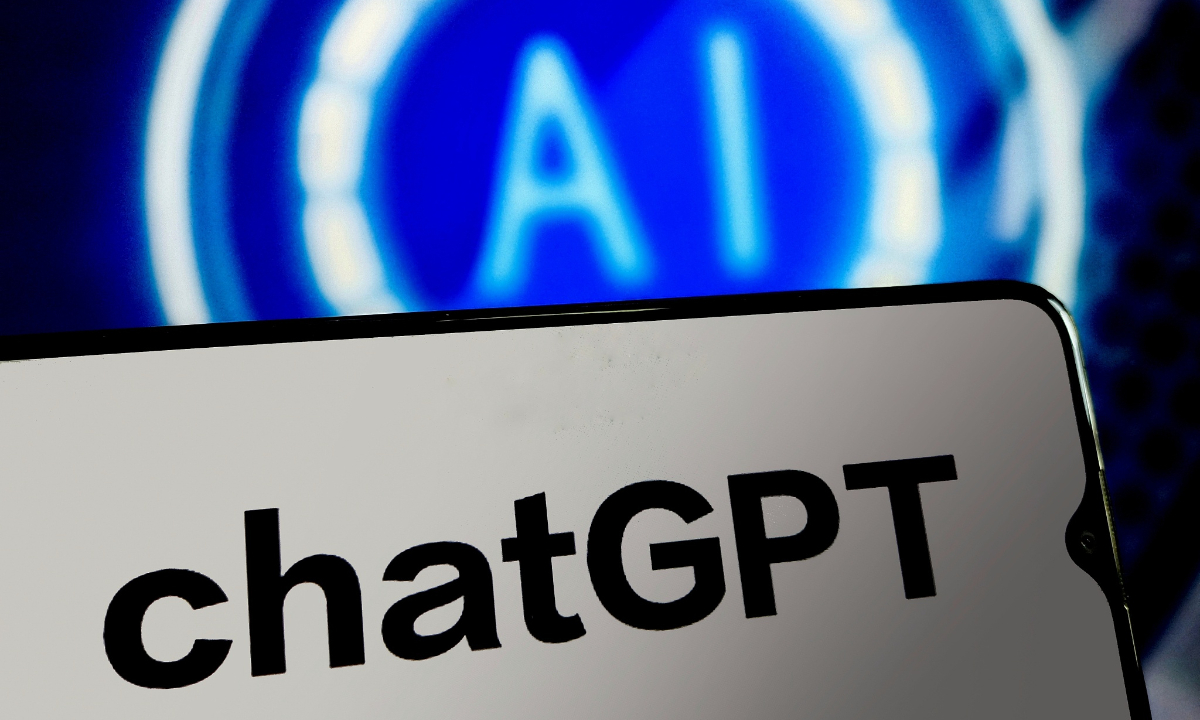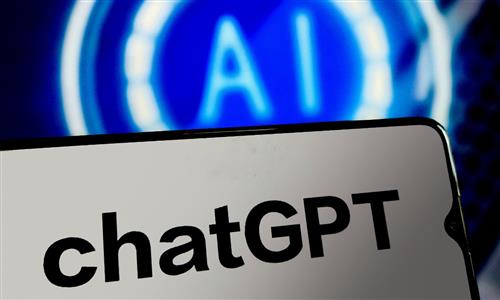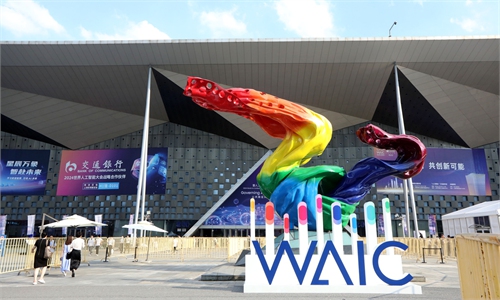
ChatGPT Photo: VCG
The Hong Kong Special Administrative Region (HKSAR) is set to adopt the "Hong Kong version of ChatGPT," also known as the "civil servant document assistance system," in the city's government departments within this year.
The adoption of a local version of a large language model comes as US tech firm OpenAI has restricted access to its models through its application programming interface (API) service in China since July 9.
Over the past two years, the HKSAR government has placed high priority on AI development. The local version of ChatGPT has been under trial by the Innovation and Technology Bureau since last month, said Sun Dong, Hong Kong Secretary for Innovation, Technology and Industry, speaking on a radio program on Saturday.
Through application, identifying issues and receiving feedback, the system now has largely improved. The SAR government projects to expand its use to all government departments within this year and eventually make it available to the entire Hong Kong society, according to Sun.
Over 180 countries and regions currently support access to the API service but the Chinese mainland and Hong Kong are excluded.
The case tells us that the restrictions on Open AI's products in Hong Kong have actually provided the HKSAR government with a rare opportunity to develop a "Hong Kong version of ChatGPT," though such curb may have some impact in the short term, Li Baiyang, an assistant professor from the data management innovation research center of Nanjing University, told the Global Times on Sunday.
Combined with policies, talent and technology, as well as collaboration with the mainland, the development of more large-scale models similar to ChatGPT with independent intellectual property rights is promising for Hong Kong, Li said.
Many industry observers reached by the Global Times believe that these restrictions imposed by the US tech company will encourage Chinese developers to accelerate their efforts in competing in the field of AI development and application.
Li suggested the city should explore local advantages in smart governance, traffic management, emergency response, financial technology, smart healthcare and other areas. In terms of cutting-edge technology, GPT-like technologies can also be deeply integrated with robotics, next-generation communications, and more.
Sun highlighted the importance of policies, talent, and applications running in parallel for AI development. He expressed his hope to create a robust interactive platform based on this large model, allowing for the development and application of AI to take place effectively.
Timothy Tong Wai-cheung, a former president at the Hong Kong Polytechnic University, told the Global Times in an earlier interview that Hong Kong has the soil to cultivate more cutting-edge technology breakthroughs.
By creating a slew of labs at the Clusters not only will the Hong Kong government be supporting the development of new scientific findings and new technological developments, but it is also helping to attract other people from all around the world to come to Hong Kong and collaborate with local scientists, Tong said.
Tong said he is confident that in a year or two, the public will begin to see more fruits coming from the 28 labs in the Clusters.




